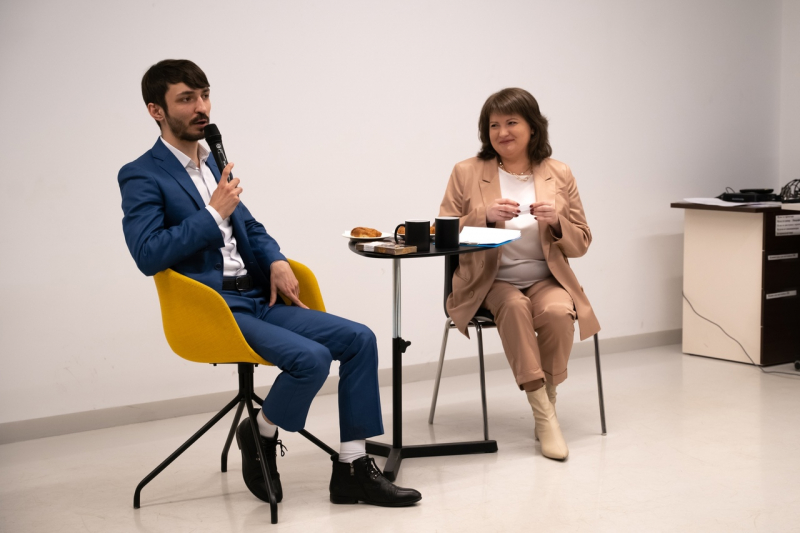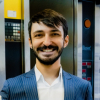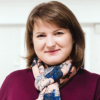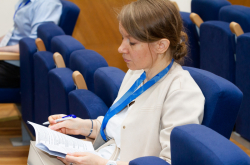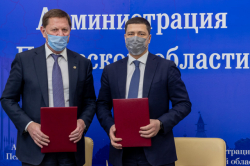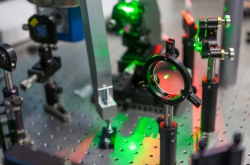A modern scientist needs more than just keen knowledge of their field. In order to translate their results to the public, they need to organize their research articles in a correct way and know which journals are more popular and more frequently cited by their colleagues. What’s more, a researcher has to be good at presenting their results to the public.
Unfortunately, it’s quite common that these aspects of future scientists’ training don’t get the necessary attention. This is why the organizers of the SEWAN 2021 international conference decided to deliver a special school for young scientists working in the fields of ecology, biotechnologies, low-temperature systems, and the power industry.
“We prepared a two-day program that shall help them with the development of both hard and soft skills,” says Anastasia Pavlova, an associate professor at ITMO’s Faculty of Biotechnologies and the school’s co-organizer. “This is why we included lots of lectures by leading professors from Russia, the Czech Republic and Iran in the first part. The second part focused on training sessions and seminars that helped our participants to develop soft skills.”
What young scientists need
The school opened with lectures on the conference’s topic. For one, Olga Sergienko, an associate professor at ITMO’s Faculty of Biotechnologies, spoke about creating a circular economy and recycling, as well as the development of environmental policies in Russia.
The lecturers also discussed the ecological footprint in the power industry and food production, green production, and recycling of various kinds of plastic.
The participants were also told about academia’s inner workings. Ilya Kuftiryov, head of the university’s Rankings Research Center, spoke about the Hirsch index and why it’s important to get published only in respectable journals, and care about one’s “publicational” hygiene from the very first steps in science.
In addition to the above, the school featured workshops on academic writing, the development of presentation skills, organization of project work, and applying for grants.

Breakfast with a scientist
Apart from the usual format of workshops and lectures, the organizers also held a “breakfast with a scientist” – an informal meeting with the Faculty of Biotechnologies’ dean Mikhail Kurushkin, where students could ask any questions they wanted.
Many of the young scientists were interested in the issues of academiс ethics. They asked questions like “is it alright to write research articles only to meet formal quota?” and “how to deal with a situation when someone makes you publish a research that you doubt is ready?”
“You should always adhere to your ethical principles,” says Mikhail Kurushkin. “This has to do with both publication ethics, and science ethics in general. Career choices, as well. You need to decide on your goals and relentlessly pursue them. Or at least use the approaches that help you get closer.”
Many participants who make their first steps as lecturers were also interested in the issue of motivating students to do science.
“It’s important to help the student to find out what exactly they are good at while they are still in their Bachelor’s years, and help develop in this direction,” notes Mikhail Kurushkin. “If a person is promising, all you need is to open the door for them. For this purpose, one needs an institution of advisors who can show such students the diversity of various scientific projects, as well as the prospects they open for a young scientist.”
Participants’ opinions
The school attracted various participants. Among them were students from ITMO, for example Anna Omelyanovich who’s in the final year of her Master’s program. She decided to attend the school while working on her thesis, as it focuses on the principles of circular economy in food production.
“The school was very interesting,” she says. “It’s great that a lot of information was given in English. For those who know it well, it was great practice; for those who don’t – it must’ve motivated them to learn this language, which is essential for a scientist.”

Another of the school’s participants, Afanasiy Protazanov, came for the school from Ekaterinburg where he studies at the Ural State Forest Engineering University.
“It would’ve been great if such events took place in our city, too,” he comments. “I hope to become the person to promote it – I traveled here, then returned to my university and shared my impressions with colleagues, and so hopefully, someone will be inspired to visit such an event in the future As for what I got from this school, I ascertained that the issue of recycling polymers that our university focuses on remains relevant, and we keep in pace with the country’s leading universities. I also got new knowledge of journals, publications and what to aim for when publishing your research.”

According to the organizers, the experiment with organizing the school was a success, and can be repeated in the future.
“The school gave a powerful boost towards the development of academic relations and new collaborations, inspired new projects and scientific research. I believe that such events are immensely important for the making of scientists who are capable of facing the challenges of the modern world,” concludes Anastasia Pavlova.
